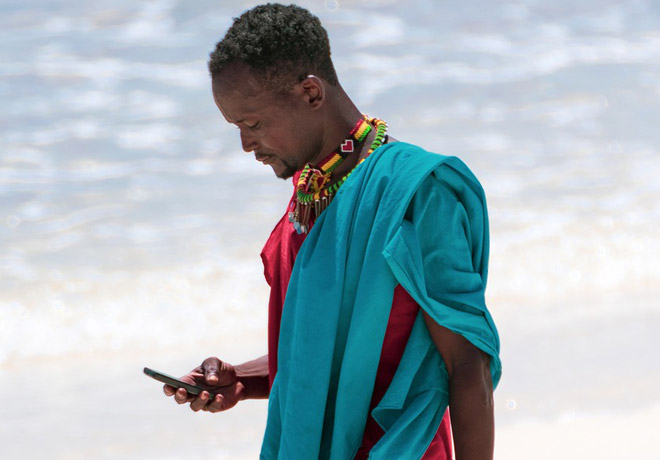Urban ministry has obvious attractions for today’s missionaries. Large cities have a wide variety of facilities (restaurants, schools for children, supermarkets, and so on). There are benefits of travel and communication. Even should poor quarters of cities such as slums have terrible conditions, Western missionaries can usually afford to live in more amenable places.
An increasing proportion of today’s global population, including that of the majority world, lives in relatively accessible urban areas.
Missiological arguments have also been made in favour of ministry in cities. An increasing proportion of today’s global population, including that of the majority world, lives in relatively accessible urban areas.[1] It seems to make sense to reach them where they are gathered. People in urban areas, already dislodged from lifestyles that might have occupied their ancestors for centuries, can be uniquely open to outside interventions and to the gospel.[2] Reaching young people in the urban environment offers promise of building foundations that will last for many years.
I want to make a general critique of the above, asking whether there is yet good reason for going to reach people in their homelands. More to the point, I want in this article to look at choice of language. In short, I want to ask:
- How satisfactory is it for a missionary to reach and engage urban people in regional or international languages?
- How important is it to make ‘costly’ efforts to reach them in their indigenous tongues?
Reaching young people in the urban environment offers promise of building foundations that will last for many years.
I suggest that there are two major arguments in favour of using globalized European languages in ministry in urban areas:
- Use of European languages enables a great deal of ministry to happen quickly and easily and with relatively little interference to Western missionaries’ own ways of life. Use of an indigenous language would require much more time, effort, and inconvenience.[3]
- Urban people typically make much more use of European languages than do their rural cousins. This is for various reasons because their own languages are compromised through not being universally known in cities, and because city technology comes from the West. In a context in which a language like English is already evidently rising in prominence, it makes sense to many that Christian mission should engage using the same language.
Problems with European languages
Inter-human proximity itself does not of course produce English: people can live very close together, in urban areas, without any profound, long-term effect on their ongoing knowledge of English or other European languages. ‘Urban’ need not mean ‘Western language’. Yet, Neville Alexander makes it clear that post-independence African countries adopted Western languages for official purposes because, as a result of the global scene combined with their own circumstances economically and politically speaking, they had little choice.[4]

Linguists tell us of problems caused by the use of European languages for formal purposes in the majority world. The sound of newly introduced ways of life, such as the good news of Jesus, when communicated using non-indigenous languages, will make them appear to be foreign. The categories presupposed in Western languages are not the familiar categories known by people in the majority world. Presumably as a result, people are more likely to come to Christ for financial or other pragmatic reasons, rather than as a result of being deeply stirred in their hearts.
Once the gospel is accepted, a lack of depth in its communication, resulting from the necessity of use of a foreign code, can perpetuate a pragmatic motivation, such as the ‘prosperity gospel’.
Once the gospel is accepted, a lack of depth in its communication, resulting from the necessity of use of a foreign code, can perpetuate a pragmatic motivation, such as the ‘prosperity gospel’.[5] The foreignness of communication means that gospel teaching can appear to be addressing someone else. Although youth may be attracted to such, the very same youth may be more inclined to abandon it later if what they are taught does not enable them to deal with crises they hit later in life.
Indigenous language and contextualization
Learning and then using an indigenous language will demonstrate that a missionary is serious in wanting to relate to nationals. Having ears that enable hearing of debates engaged by locals will enable a missionary to begin to understand the local contexts actually faced by native people, as they themselves understand them. The gospel is said to be translatable.[6] When appropriately translated, the good news of Jesus can speak pertinently into a variety of contexts.
Such a translated gospel may make little sense, or even appear plainly wrong, when heard only in translation back into Western languages. Western languages function using categories that remain unfamiliar to indigenous people.[7] If they do not understand the very words they use, this can make people a victim rather than a master of their own communication.[8] The above are just a few ideas drawn from a vast literature that points to the importance of contextualization in cross-cultural mission, where use of an indigenous tongue both is, and enables, contextualization.
Sympathetic magic
Furthermore, apparent similarity to the West found in urban contexts is often deceptive. I want to consider this with respect to sympathetic magic. While this is often considered to be practiced in primitive societies, Paul Rozin and Carol Nemeroff ‘find many examples of … operation [of sympathetic magic] in educated adults in Western developed countries … [they find that] laws [of sympathetic magic] are factors in decision making in US culture.’[9] According to Rozin and Nemeroff, in sympathetic magic ‘things that have once been in contact with each other may influence or change each other for a period that extends well past the termination of contact’, and ‘things that resemble one another share fundamental properties.’[10]
A few examples from Rozin and Nemeroff illustrate this. They discuss the ‘law of contagion’:[11]
- Someone might be inclined to reject a whole bowl of soup when one fly lands in it.
- Mere contact of a cockroach with food can lead people to conclude that it is inedible.

Just as the cockroach that has touched some food can appear to contaminate a whole bowlful, so the smartphone implicitly ‘modernizes’ the African tribesman.
Shapes carry qualities, so that a chocolate made in the shape of human faeces can be disgusting. Sympathetic magic also operates positively: a cup once used by the Queen, a cardigan once worn by a US President, or a football shirt once used by a particular professional footballer, can become highly coveted items, sometimes sold at a high price, as if the essence of the person once associated with the item is carried on or in it.
The above examples illustrate ways in which human living is far from ‘rational’. Humans, including Western people, commonly make implicit associations on the basis of resemblances that, ‘rationally speaking’, do not exist. An equivalent to the above examples (much commented on in recent years) is that of African tribesmen using mobile phones:
- An image of a herdsman in a wild-appearing African steppe using a smart phone causes some cognitive confusion, as Western people’s perceptions vacillate incongruously between impressions of primitivity and those of modernity.
- Their mind struggles to deal with the contradiction: that a primitive tribesman can at the same time be holding and using a high-tech implement like a contemporary smart phone.

Just as the cockroach that has touched some food can appear to contaminate a whole bowlful, so the smartphone implicitly ‘modernizes’ the African tribesman.[12] The tendency to make assumptions about African people found in a modern-appearing majority world urban context is similar. A background of buildings, cars, computers, supermarkets, televisions, and so on will affect Westerners’ perception of the African.[13] The assumptions that Westerners pick up include that those people are no longer ‘traditional’. This scene deceives the Western observer regarding the mindset of the person concerned. The use of a European language such as English has a similar effect, appearing to transform a foreign person into ‘one of us’, into being ‘sophisticated’ in the way that ‘we are’.
Sympathetic magic is often considered to be confined to primitive people. Rozin and Nemeroff have discovered that ‘modern’ people are subject to the same deceptive ‘magical’ effects. I conclude that Western people are not well equipped to evaluate rationally majority world scenes. They are apt erroneously to impute Western qualities to non-Western people: a Western person will likely, in their own head, impute ‘Westernisms’ onto indigenous African people.
Implications
Some missiologists make a clear case in favour of urban rather than rural ministry. Westerners ministering in urban contexts in other parts of the world can easily, I suggest, be deceived by the apparent familiarity of settings and languages that they meet. I have here identified this apparent familiarity as often being based on ‘magic’. Reliance on magic for Christian ministry and development activities is problematic. The importance of accurate contextual understanding is the prime reason given in this article for advocating that it is appropriate to use indigenous languages, even in urban contexts, in the majority world. So my practical advice is to use local languages and local resources in what you are doing.
This article constitutes a small part of the wider case made by the AVM (Alliance for Vulnerable Mission)[14] in favour of the use of local languages and resources by some missionaries from the West in the majority world. Such linguistic and resource practice is known as vulnerable mission. It can enable a foreign missionary, by coming alongside people, to empower them.
Endnotes
- See https://data.worldbank.org/indicator/SP.URB.TOTL.IN.ZS.
- Editor’s Note: See article by Mac Pier, entitled, ‘Movement Day and Lausanne’, in May 2016 issue of Lausanne Global Analysis https://lausanne.org/content/lga/2016-05/movement-day-and-lausanne.
- Note that what I am advocating for is Western missionaries learning and engaging using non-Western languages, not simply Western missionaries communicating using Western languages to people who are then expected to engage their colleagues using indigenous languages. The latter conceals irreconcilable translation difficulties.
- Neville Alexander, ‘English Unassailable but Unattainable: the dilemma of language policy in South African Education’, Paper presented at the Biennial Conference of the International Federation for the Teaching of English (University of Warwick, England, UK, July 7-10, 1999), http://eric.ed.gov/ERICWebPortal/recordDetail?accno=ED444151 (accessed 28.08.08), 5.
- Editor’s Note: See article by Kwabena Asamoah-Gyadu, entitled, ‘The Prosperity Gospel and Its Challenge to Mission in Our Time’, in July 2014 issue of Lausanne Global Analysis https://lausanne.org/content/lga/2014-07/the-prosperity-gospel-and-its-challenge-to-mission-in-our-time.
- Lamin Sanneh, Translating the Message: The Missionary Impact on Culture (New York: Orbis Books, 1989).
- For example, Western languages tend to presuppose dualisms, such as that between spiritual and material.
- Fear of saying the wrong thing in the wrong way contributes to education in Africa often being by rote.
- Paul Rozin and Carol Nemeroff, ‘The Laws of Sympathetic Magic: a Psychological Analysis of Similarity and Contagion.’ in: Stigler, J & Herdt, G and Schweder R.A. (eds) Cultural Psychology; Essays on Comparative Human Development (Cambridge University Press, 1990):207, 229.
- Ibid 206
- Ibid 206. Notions of ‘magical’ contagion preceded and apparently set the foundation for the science of micro-organisms ibid 218.
- The use of the smart phone by the African tribesman will also contaminate (be a contagion with respect to) the purity of the smartphone as a Western/ modern product. Our main interest here is in the reverse
- Note that in much of Africa, it is outsiders and not indigenous African people who are largely responsible for designing and controlling the operation of ‘modern’ urban environments. Hence, even if in Africa, African people in that sense remain ‘strangers’ to modern contexts within their homelands.
- See http://www.vulnerablemission.org.

